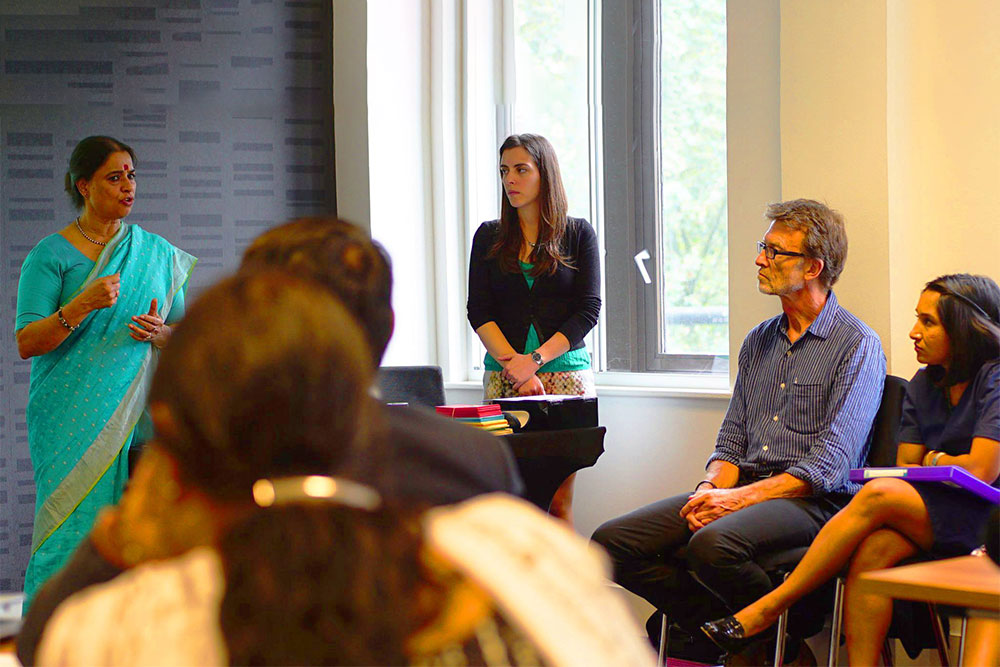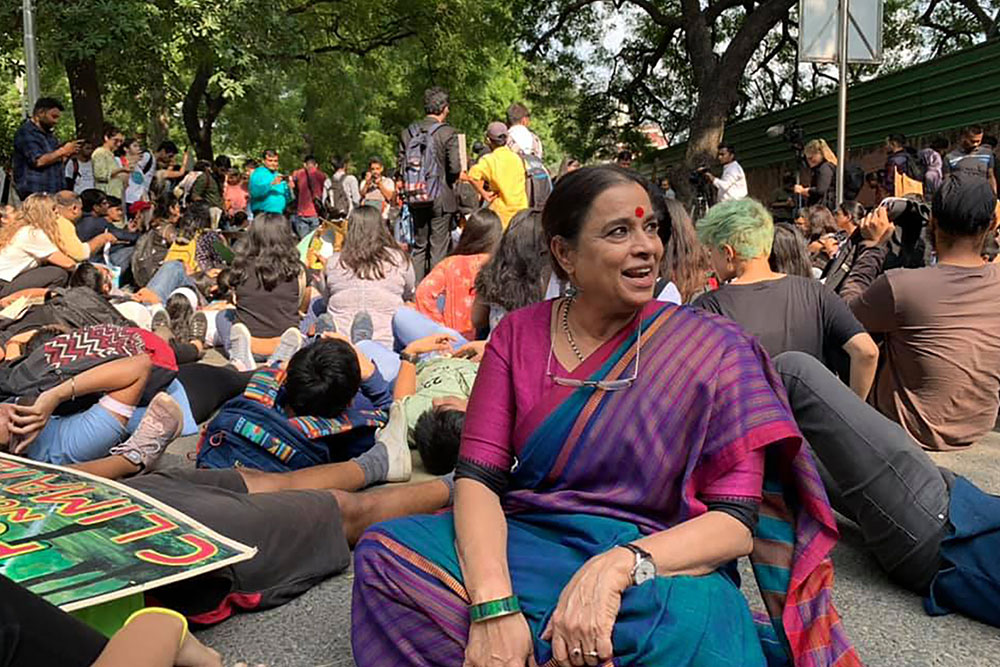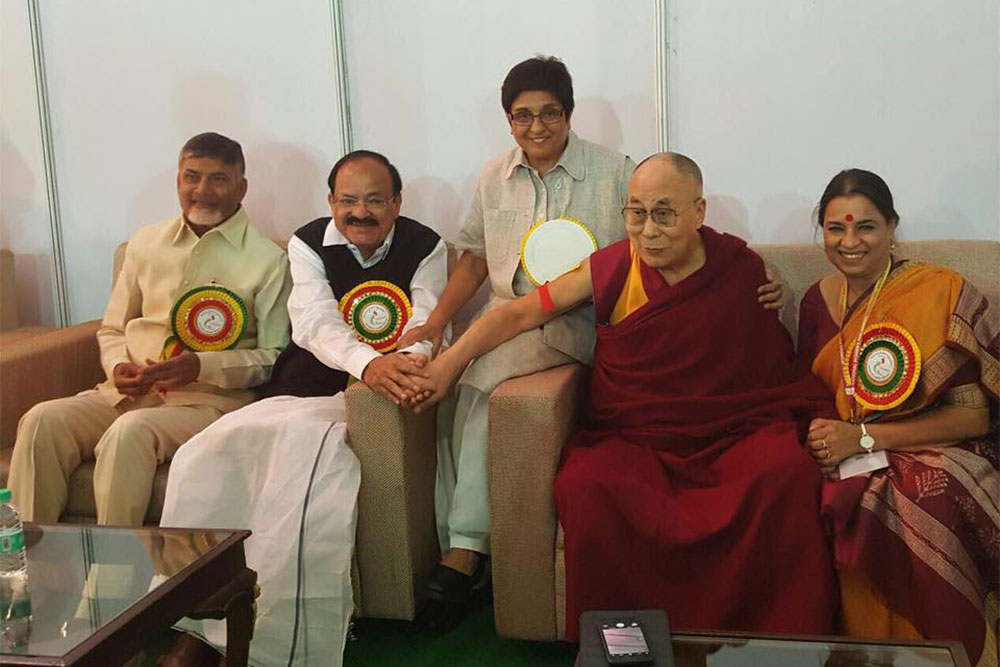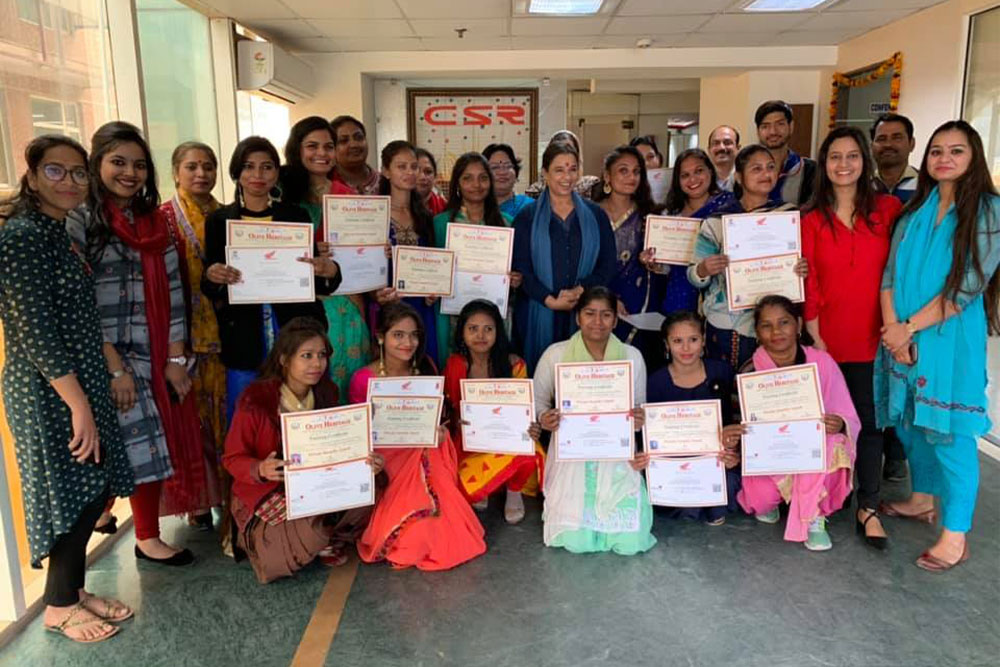If you were to narrow down on one thing that can best equip women in their struggle for equal rights, it’s education. Dr Ranjana Kumari, the Director of the Centre for Social Research, Delhi, agrees wholeheartedly.
“Education is the spirit and essence of empowerment,” she said, during an exclusive interview with us. “If you’re not educated, you won’t even know what’s there for you.” But this education, she argues, is not merely based on completing your schooling or getting a degree or two. What matters even more is your “ability to use your education to empower yourself, to get access,” she says.
If there’s anything this prolific academician, fiery social activist, and inspiring educator has proved through her four decades of struggle for women’s rights and empowerment in India—and her own life experiences—it’s certainly this.

A lesson in making your voice heard
Growing up within the compound of the Kashi Vidyapith—founded on Gandhian Swadeshi principles by her paternal grandfather, Pandit Vishwanath Sharma—undoubtedly provided Dr Kumari with a privilege that most women do not enjoy. Apart from having the scope to interact with the cream of Varanasi’s intelligentsia, she talks about going to listen to Pandit Ravi Shankar play on the ghats and MF Hussain painting one of his masterpieces in the compound. But even as she talks about growing up in an environment where the possibility of learning was unlimited, Dr Kumari notes that the obstacles that plague women in pursuit of an education came up in front of her too.
“You can do everything, but only when you’re given the permission to do everything,” she shares, while recalling the first point of departure from her family’s tradition of providing women with higher education only in all-girls institutions. While the idea that she would continue to study after school was a given, the notion that she should study in a co-education environment, where men and women get the same quality of education, became a huge point of contention. Dr Kumari recalls how she went on a hunger strike for two days to be able to get enrolled at the Benaras Hindu University (BHU) for her graduation, and explains that she had to resort to similar means when she wanted to shift to Delhi to pursue her Master’s degree at the Jawaharlal Nehru University (JNU).

These incidents from her formative years showed Dr Kumari that even when you come from an educated or enlightened family, like she did, women can often find it difficult to challenge prejudices that hinder them. But this wasn’t the only phase of her life that shaped Dr Kumari and the path she would take in the future. Moving to Delhi opened up more opportunities for her to learn about the urgency of upholding people’s basic rights.
Challenging dowry practices and violence
Just like most of her contemporaries, Dr Kumari took to political and social activism during the period of Emergency (June 1975 to March 1977). With elections cancelled, civil liberties suspended, and rampant human rights violations, students across India joined hands to protest and fight the regime in control. Once the Emergency was over, Dr Kumari and her compatriots continued to focus on human rights violations. “I was planning to become a politician,” she reveals, smilingly. It was then that she was faced with the event that changed the course of her life.
“Pramila Dandavate, who used to head the Mahila Dakshata Samiti, once gave us a call in JNU, saying she wanted a group of students,” she explains. “We reached a destination in Karol Bagh where a girl was killed. She was burned to death. There was this cot where she was lying. Her family was fighting that this was a murder, but the in-laws were saying no, she committed suicide,” she recalls. “For me, this whole incident shook my conscience. I though this is no life for a woman in this country. And that was the turning point for me. Politics was something everybody in the family was doing. I wanted to do something which could really change the life of a girl like her. I wanted this girl to get justice, and from that day on, all my work has been in that direction,” she says.

“What’s surprising is that at that time there was a law enacted in 1961, but not one case of dowry was registered under the law,” she says, highlighting the fact that their agitation enabled an amendment in the Dowry Prohibition Act in 1983, which established specific crimes related to dowry, including harassment, cruelty, and abetment to suicide, as punishable offences. Driven by this passion, in 1986, Dr Kumari started a study into dowry practices and violence, and finally published Brides Are Not For Burning: Dowry Victims In India (1988)—a book that undeniably brought focus to the ugly and inhumane face of dowry. But has much changed since the 1980s where dowry and violence against women is concerned?
Smashing patriarchy: A new phase is here
Dr Kumari explains that even when we have such a stringent law against dowry, its new, market-driven face, has gained a popularity of sorts among the families involved in a wedding. “There is some kind of a silent agreement about dowry from both sides, and that is why it continues,” she says. “Instead of grooming their daughter and giving her the possibility of highest possible education, giving her a set of skills to run her own business, they want to somehow do away with the responsibility of sharing the father’s property.”
Despite this, Dr Kumari believes that there is a lot of progress we have been able to make over the last 40 years. “Four decades of work has created a no-nonsense generation of young women, a generation which has seen all this, and has been able to set their own boundaries, whether sexual or educational,” she explains. “I won’t say we’ve reached where we wanted to when I first started out, and I know that social change is a generational issue, so it will take more time. But younger women today don’t have to be inferior to men in any way to get married, and you don’t HAVE to get married. You don’t HAVE to do anything,” she insists.

“Girls today have the opportunity to think differently, within a new framework,” she says, adding that no woman should give up on this hope pinned on the future. “Start challenging everything that controls you, that subordinates you, that makes you think of yourself as less than anybody else. Girls today have to do everything to be independent and autonomous. They must not sacrifice their autonomy,” she adds, highlighting once again on the need for education. “Today I’m able to talk to you, coming from a small town, I’m able to do whatever I’m doing because of education. So, never compromise on that.”
“And other than that, I’d say never, ever tolerate any form of violence. Absolutely no! When we teach girls, we tell them that if somebody has raised their voice or raised their hand, stop it then and there. Convey a strong message that this will not do,” she insists, “That you won’t tolerate this. These are the things that girls today are empowered to do.”